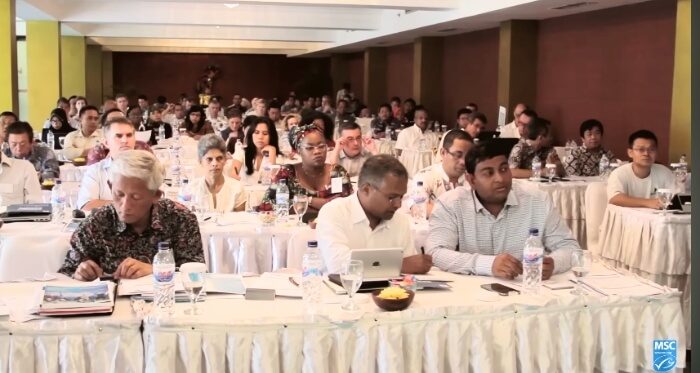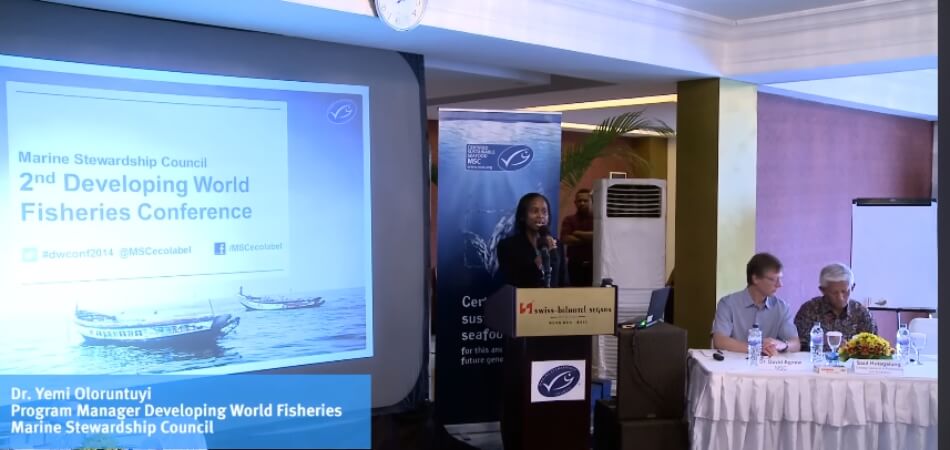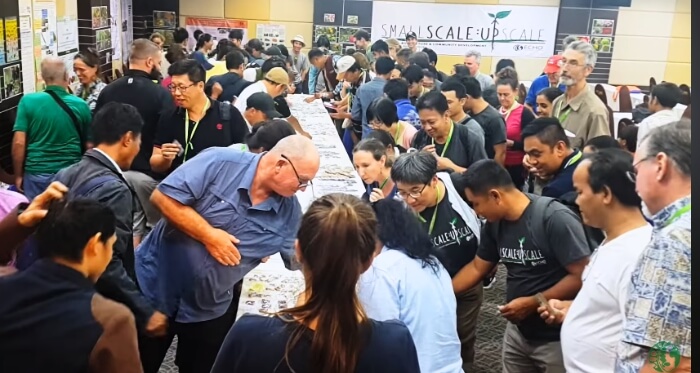There are many obstacles to overcome when managing the fishing industry’s complexity, from maintaining sustainable methods that safeguard our ecosystems to managing aquatic resources wisely. The key question that needs to be answered in order to tackle these issues is: What is fisheries conference?
A Fisheries Conference is a nexus for those passionate about the aquatic world. Here, experts, researchers, and stakeholders converge to tackle the pressing issues of fisheries management. By sharing knowledge and collaborating, they forge a path to sustainable solutions.
So, for those aiming to explore deeper into the intricacies of fisheries, attending such a conference is not just enlightening but essential. Together, we can ensure that the fishing industry thrives while being environmentally responsible.
Historical Overview of the Fisheries Conference
The Fisheries Conference, over the years, has evolved into a crucial nexus for professionals in the aquatic realm. Established in the late 20th century, its roots trace back to small regional gatherings. These early meetings aimed to address local fishing issues and challenges.

By the turn of the millennium, as fishing became a global concern, the need for an international platform became evident. This evolution led to the birth of the Grand Fisheries Conference, fostering cross-border collaboration. The emphasis shifted towards sustainable fishing practices, environmental conservation, and global fisheries policies.
Over the past two decades, the conference has seen remarkable growth in participation and reach. Distinguished experts from around the world convene, sharing cutting-edge research and innovations. As we move forward, the legacy of the Fisheries Conference continues to shape the industry’s future.
What is Fisheries Conference?
The Fisheries Conference is a beacon for stakeholders, weaving a narrative of sustainability, innovation, and collaboration. In the vast ecosystem of the fishing industry, the Fisheries Conference stands as a prominent platform for dialogue and action. Assembled here are experts, researchers, and stakeholders, each with a unique perspective on fisheries. Their collective knowledge and insights aim to address the myriad challenges that this sector faces.
The history of this conference is rich, reflecting the evolving dynamics of the aquatic domain. Beginning as localized gatherings to tackle regional issues, it now garners global attention. With an increasing emphasis on sustainability and responsible practices, the conference fosters an environment for meaningful collaboration.
Looking ahead, the Fisheries Conference promises to be a beacon of hope for the industry. By uniting minds from various backgrounds, it paves the way for innovative solutions. Together, participants are shaping a brighter, more sustainable future for global fisheries.
Who Attends Fisheries Conferences?
Fisheries Conferences cast a wide net, drawing in a diverse pool of participants from across the aquatic industry spectrum. From seasoned experts to budding professionals, it’s a melting pot of knowledge and collaboration. Each attendee, with their unique expertise, contributes to the depth of these crucial gatherings.
Academic Researchers
Driven by their quest for knowledge, academic researchers frequent these conferences to share their latest findings. Their studies often shape policies and offer new methodologies. They bridge the gap between theory and practical application.
Industry Professionals
Fisheries industry professionals bring a wealth of hands-on experience to these gatherings. They discuss trends, challenges, and seek sustainable solutions. Their insights anchor discussions in real-world scenarios.
Government Officials
Public sector representatives play a pivotal role in drafting and implementing fisheries policies. By attending, they gain global perspectives and insights. This aids in crafting balanced, effective regulations.
Environmental Activists
Dedicated to preserving aquatic ecosystems, environmental activists attend to voice concerns and propose sustainable practices. They highlight environmental challenges and work collaboratively for solutions. Their presence ensures eco-conscious deliberations.
Local Fishermen
Often, local fishermen offer the most authentic insights into the fishing industry. They share firsthand experiences, challenges, and needs. Their narratives provide a grassroots perspective, grounding discussions in reality.
Trade and Supply Chain Experts
Understanding the fishery supply chain is essential for holistic industry management. These experts discuss logistics, market trends, and global trade dynamics. Their inputs optimize the journey from catch to consumer.
Each of these attendees, with their unique backgrounds and expertise, contributes to the rich tapestry of Fisheries Conferences. Through collaborative discussions and shared insights, they collectively drive the industry toward a sustainable and prosperous future.
Format and Structure of Fisheries Conferences
Fisheries Conferences are intricately designed events that foster an atmosphere of collaboration, innovation and shared knowledge. Their structure, carefully curated, ensures a comprehensive exploration of the fishing industry’s multifaceted challenges. Let’s dive into the typical format and structure of these essential gatherings.
Keynote Presentations
Highly esteemed figures within the fishing sector often open the conference with keynote presentations. Their insights set the tone for subsequent discussions, highlighting critical industry trends and challenges. These sessions offer inspiration strategic vision, and sometimes challenge the status quo.
Panel Discussions
Panel discussions unite multiple experts on a shared platform, facilitating an engaging debate on diverse topics. By presenting different viewpoints in real time, these panels make room for comprehensive insights. Audience participation during Q&A segments further enriches these lively discussions.
Workshop Sessions
Focused workshop sessions delve deeper into specific areas of fisheries management and innovation. Attendees actively participate, gaining hands-on experience and learning through interactive activities. The workshops often end with actionable takeaways, empowering participants with new skills or knowledge.
Networking Events
Networking is a vital component, allowing attendees to forge meaningful connections with peers and potential collaborators. These events, both formal and informal, promote relationship-building and collaboration across various sectors. Here, ideas merge, partnerships form, and the foundation for future projects is laid.
Research Presentations
Researchers and academics showcase their latest findings during these dedicated segments. These presentations often cover a myriad of subjects, from conservation techniques to emerging industry technologies. Attendees gain a snapshot of the cutting-edge advancements and ongoing research in the fisheries realm.
Exhibition Halls
Exhibition halls are bustling hubs featuring stalls from various organizations, tech companies, and industry vendors. They display innovative products, tools, and services tailored for the fisheries sector. Attendees can explore, interact, and discover solutions that can be applied in their respective fields.
The meticulous design of Fisheries Conferences ensures that attendees not only gain knowledge but also form valuable connections and collaborate on groundbreaking solutions. Through this blend of presentations, discussions, and interactive sessions, the conference paints a holistic picture of the fishing industry’s present and future.
Advantages of Participating in Fisheries Conferences
Fisheries Conferences are more than just gatherings; they are the epicenters of knowledge and collaboration in the aquatic domain. For industry professionals, researchers, and enthusiasts, the benefits of participating are numerous. Below are ten advantages that highlight the importance of such conferences.
- Knowledge Expansion: Attendees get exposed to the latest research, trends, and innovations. This ensures they stay updated with industry advancements.
- Networking Opportunities: Building relationships is crucial in any field. These conferences provide an avenue to meet potential collaborators and industry peers.
- Skill Development: Through workshops and tutorials, participants can hone their expertise. They leave with enhanced skills and fresh perspectives.
- Influencing Policy: Engaging in discussions can shape industry guidelines. Active participants can influence policies and best practices.
- Access to Technology: Exhibition halls showcase the newest technologies and tools. Participants can explore solutions tailored for the fisheries sector.
- Collaborative Initiatives: Meeting like-minded professionals can birth joint projects. These collaborations can lead to sustainable solutions and ventures.
- Academic Growth: Researchers and students can present their work, receiving valuable feedback. This aids in refining research and expanding academic horizons.
- Global Perspective: With international participation, attendees gain a worldwide viewpoint. Understanding global challenges and solutions enriches one’s professional approach.
- Professional Recognition: Presenting papers or leading sessions can boost one’s professional standing. It’s an opportunity for personal brand building and acknowledgment.
- Future Forecasting: Engaging in forward-thinking sessions provides insights into the industry’s future. Attendees can strategize their ventures accordingly.
By leveraging these benefits, attendees of Fisheries Conferences are empowered to drive change, innovate, and lead in their respective areas within the aquatic sector.
Bottom Line
The question, What is Fisheries Conference? Not just about defining an event but rather uncovering a movement in the world of aquatic conservation. These conferences act as vibrant meeting points, connecting a tapestry of voices – from enthusiastic researchers to hardworking local fishermen. Their collective insights help clear up the complex challenges of the fishing industry.
What makes these events remarkable is the broad spectrum of benefits they offer. Attendees experience a blend of learning, networking, and influencing global fisheries narratives. They’re not merely passive participants but active contributors, shaping a discourse that drives sustainable practices and innovation in the field.
Fisheries Conferences represent a beacon of collaboration and knowledge. In a world where the balance between industry needs and environmental concerns is delicate, these gatherings shine a light on responsible ways forward, ensuring a harmonious future for our aquatic ecosystems.







